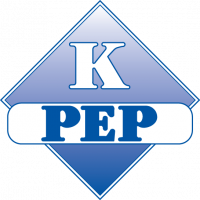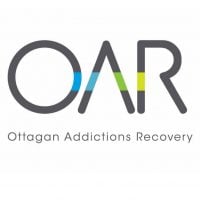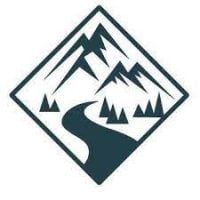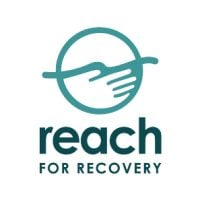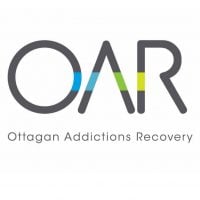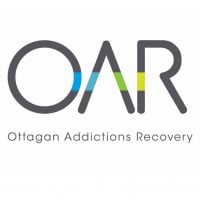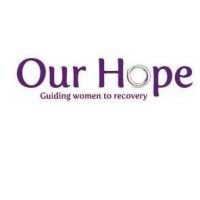Transitional Living Center
Drug Rehab Center in Muskegon, Michigan
The Transitional Living Center in Muskegon, Michigan is a licensed rehabilitation facility offering evidence-based addiction recovery services, including residential treatment, counseling, medication management, and holistic approaches to promote long-term recovery.
Multiple patients have reported Transitional Living Center as permanently closed.
Research other rehabs in Muskegon, Michigan, or get help finding an open facility.
About Transitional Living Center in Michigan
Transitional Living Center (TLC) in Muskegon, Michigan is a licensed, quality-driven addiction and substance abuse rehabilitation facility. Since 1986, they have provided comprehensive evidence-based addiction recovery services with an individualized approach. TLC offers a residential treatment program that provides a safe living environment, along with medical and psychological care, to assist individuals in overcoming their addictions.
At TLC, individuals receive comprehensive care that includes detox support, counseling, and medication management. Clients are able to work with counselors in individual and group settings to address the physical and psychological challenges that addiction brings. In addition to traditional approaches, TLC also offers a holistic approach that seeks to address the individual’s physical, mental, and spiritual needs in order to promote long-term recovery.
TLC is fully accredited and licensed by the Joint Commission and The State of Michigan, as well as being a member of the National Association of Addiction Treatment Providers and the Academy of Clinical Director. They also offer 12-step based recovery services, a spiritual component to their treatment, and work with family members to ensure clients have the necessary support to remain engaged in their treatment plan. Further, clients are provided with aftercare planning and access to a variety of resources to assist in their transition to sustainable recovery.
Genders
Ages
Modality
Additional
Conditions and Issues Treated
Substance Abuse Treatment is important when getting sober, as it helps addicts learn the skills they need to live a clean life. There are many different kinds of recovery treatment, including but not limited to medication-assisted therapy, behavioral therapeutic approaches, self-help groups, and counseling. Each treatment has its benefits that help addicts recover.
Counseling can help addicts learn the skills they need to live sober lives. It can be used to treat underlying mental health issues, like depression or anxiety, that could lead to relapse. Counseling can also help people find work, deal with family problems, and learn to manage living without drugs.
With so many people addicted to opioids, we need to help those who want to quit. The cycle begins when opioid addicts take opioids for a painful injury. When someone starts taking their medication differently or in excess, it means they’re addicted and at risk of overdosing.
In , detoxing from these types of treatments is the most effective way to beat this. Most facilities begin with medical assistance and then provide counseling services; rehabilitation follows after successful treatment.
Levels of Care Offered
This center offers a variety of custom treatment tailored to individual recovery. Currently available are Aftercare Support, Drug Rehab, Residential, Sober-Living / Half-Way, with additional therapies available as listed below.
Sober living homes, offered by rehabilitation facilities, help recovering addicts transition back into society. These homes have rules and regulations that must be followed to maintain sobriety. They also provide resources such as vocational training and therapy sessions.
Residential treatment programs are those that offer housing and meals in addition to substance abuse treatment. Rehab facilities that offer residential treatment allow patients to focus solely on recovery, in an environment totally separate from their lives. Some rehab centers specialize in short-term residential treatment (a few days to a week or two), while others solely provide treatment on a long-term basis (several weeks to months). Some offer both, and tailor treatment to the patient’s individual requirements.
The accomplishment of completing a drug or alcohol treatment program is just the first step. Once that is complete, aftercare support comes into play. This includes helping people adjust to life without substances outside of guidelines with assistance like getting sober living accommodations and career counseling and AA/NA programs for those who are struggling between sobriety or want continued help in maintaining it once they have completed their initial rehabilitation at an addiction facility.
Aftercare comprises services that help recovering addicts readjust to normal day-to-day activities while working on specific issues. These problems include psychiatric issues, family problems caused by substance abuse, continuing education pursuits if desired during rehab, etc. These can last up to one year+ depending on what’s needed most urgently upon completion of earlier stages.
Therapies & Programs
Different people react differently to various treatment options. Some drug rehabilitation centers offer individualized treatment that caters to the specific needs of a drug addict. The best treatment option varies on an individual depending on the type of drug abused, life history, medical condition of the person, social circumstances, and the environment they live in now.
When a person enters drug rehab, they usually have anti-drug associations such as withdrawal symptoms, stress, cravings, etc. The first step of drug rehab is to detoxify the body from any residual substances in it. Drug rehabilitation centers usually employ trained medical professionals to help in this process. Usually, the initial detoxification lasts for five days, where the person is monitored under close supervision.
Family therapy sessions typically involve the addict and their family members. During these sessions, a therapist will work with everyone involved to help them understand addiction and find healthy ways of coping without substance abuse.
Some addicts might feel embarrassed about their substance abuse problems. By encouraging family members to attend these sessions, therapists can show addicts that they’re not alone in dealing with addiction. Therapists can also work with family members to help them understand addiction and learn how to offer support and encouragement to their loved one as they deal with substance abuse issues.
Attending group therapy at Transitional Living Center in , is a useful way for those seeking sobriety to realize they aren’t the only one going through it.
This is when a group of people on different recovery phases get together and talk about what they’re going through, their triggers, successes, and failures. This can include alternative types of therapies too! Group therapy may occur on an outpatient or inpatient basis with groups that have no pre-existing relationships outside the session, unlike support groups where everyone already knows each other beforehand.
Life Skills Services offered at Drug Treatment Centers assists addicts in their recovery by teaching them healthy coping mechanisms that will aid them in becoming sober, focussing on helping people enter into, and maintaining long-term sobriety. Drug Treatment Centers provide Life Skills Services at varying levels of intensity, specific to the needs and requirements of each patient.
Life Skills Services offered at Drug Treatment Centers assists addicts in their recovery by teaching them healthy coping mechanisms that will aid them in becoming sober, focussing on helping people enter into, and maintaining long-term sobriety. Transitional Living Center in Muskegon, Michigan provide Life Skills Services at varying levels of intensity, specific to the needs and requirements of each patient.The benefits of Life Skills Services offered at Drug Treatment Centers:
- Restores hope and empowerment — Helps addicts believe that recovery is possible and instills a new confidence in their ability to achieve a positive, drug-free future
- Enhances family involvement — Encourages families to get involved in the recovery process and supports their understanding and encouragement of healthy behavior.
- Increases patient’s compliance — Helps patients take responsibility for and ownership of their recovery and encourages continued progress
- Reduces relapse rates — Encourages long-term abstinence and emphasizes the importance of establishing sober support systems.
Additional Details
Specifics, location, and helpful extra information.
Muskegon, Michigan 49444 Phone Number(231) 739-6840 Meta DetailsUpdated November 25, 2023
Staff Verified
Transitional Living Center Patient Reviews
There are no reviews yet. Be the first one to write one.
Muskegon, Michigan Addiction Information
Michigan has the second-highest rate of drug and alcohol abuse in the nation. Heroin is linked to more than 50% of the state's hepatitis C cases. Marijuana is the drug most often associated with crimes in Michigan, followed by methamphetamines. Opioids alone are responsible for almost 20% of all drug overdose deaths in Michigan.
Muskegon has one of the highest rates of drug-related deaths in the state. Over 1,000 hospitalizations in Muskegon County were due to drugs and alcohol in 2016. Heroin addiction is at its peak in the city. Drug treatment in Muskegon, Michigan can differ depending on the person's needs and situation. However, most drug treatment programs will offer detoxification services, individual or group counseling, and aftercare planning.
Treatment in Nearby Cities
- Alpena, MI (189.0 mi.)
- Kingsford, MI (200.6 mi.)
- Bessemer, MI (293.8 mi.)
- Saint Joseph, MI (78.2 mi.)
- Wakefield, MI (290.0 mi.)
Centers near Transitional Living Center
The facility name, logo and brand are the property and registered trademarks of Transitional Living Center, and are being used for identification and informational purposes only. Use of these names, logos and brands shall not imply endorsement. RehabNow.org is not affiliated with or sponsored by Transitional Living Center.

